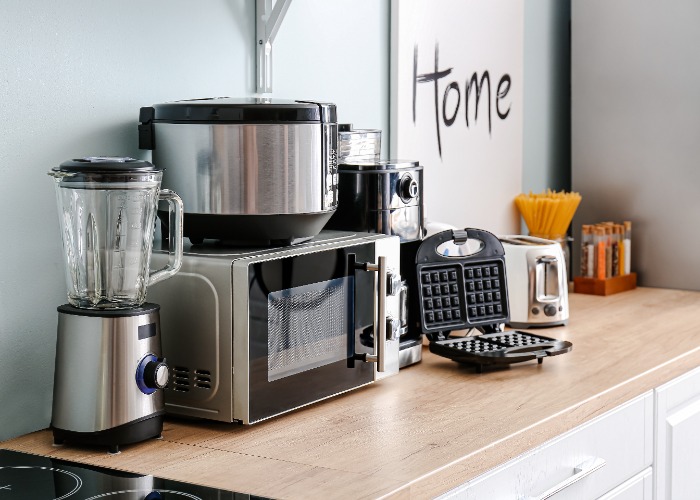Rising energy bills: work out how much your appliances are costing you

As energy bills look set to increase yet again, we look at the household appliances that consume the most energy.
Most of us are looking to improve how efficiently we use energy in our homes.
After all, gas and electricity bills look set to increase again by 3% in April, according to forecasts from experts Cornwall Insights.
Following rises in the Energy Price Cap (the maximum cost per unit of energy), the average annual energy cost for a UK household is expected to be £1,717.
One way to understand how to reduce spending on energy bills is to look into precisely where we are using that energy and specifically which appliances are costing us the most.
So which appliances hit our finances the hardest? And what can you do to reduce those outgoings?
Consumer champion Which? has crunched the numbers to identify the most expensive devices.
Here are the findings.
The most expensive appliance energy running costs
|
|
Average annual running cost |
Cheapest annual running cost |
Most expensive annual running cost |
|---|---|---|---|
|
Washer dryer |
£209 |
£135 |
£313 |
|
Tumble dryer (condenser) |
£130 |
£102 |
£174 |
|
Fridge freezer (American style) |
£110 |
£83 |
£144 |
|
Fridge freezer (freestanding) |
£76 |
£36 |
£139 |
|
Dishwasher |
£69 |
£41 |
£98 |
|
Fridge freezer (integrated) |
£68 |
£42 |
£135 |
|
Range cooker (electric) |
£63 |
£46 |
£94 |
|
Washing machine |
£60 |
£23 |
£80 |
|
Built-in single electric oven |
£59 |
£47 |
£72 |
|
Built-in double electric oven |
£56 |
£41 |
£71 |
|
Freestanding cooker (electric) |
£56 |
£46 |
£72 |
|
Tumble dryer (heat pump) |
£51 |
£34 |
£77 |
|
Kettles |
£36 |
£23 |
£52 |
|
TVs |
£28 |
£11 |
£59 |
|
Air fryers |
£28 |
£16 |
£45 |
Source: Which?
According to the data, appliances that cool or heat water and air tend to be the most costly.
Washer dryers are the most expensive devices to run by quite a long way, Which? has found.
While costs vary depending on your make and model, you could be forking out £209 per year – even more if you’re a high user.
At the other end of the spectrum, air fryers are the cheapest devices to run, at just £28.
While costs vary, the research put the highest amount for air fryer usage at £45.
Low-cost ways to save and cut your energy bills
A question of efficiency
If you have an older model, no matter what sort of appliance, then chances are it is not as efficient as it used to be.
The reality is that as appliances get older, they have to work harder, whether that’s in order to clean your dishes or keep your food cold.
Therefore, it may be worth considering whether you can save more money in the long run by upgrading to a newer, more efficient model.
According to Which?’s research, it also wise to buy an appropriately sized device based on your usage.
The research also point our that certain devices are inherently more energy efficient, such as heat pump tumble dryers.
Although these may involve a higher financial cost, they can be cheaper in the long run.
As shoppers, we are far more informed today since all manufacturers have to publish the efficiency rating of appliances upfront, allowing you to determine for yourself whether you are getting a sufficiently efficient model for the cost.
Energy company discounts, Pension Credit, Household Support Fund and more
Have your say
Are you taking any steps to improve energy efficiency this year? Are there any devices you feel are a real drain?
We’d love to hear your thoughts in the comments below.
Comments
Be the first to comment
Do you want to comment on this article? You need to be signed in for this feature